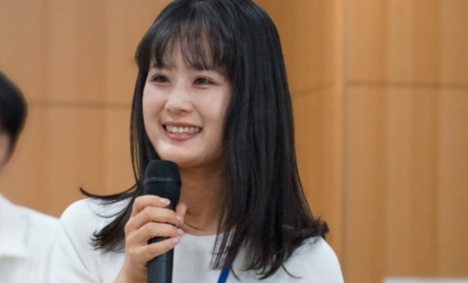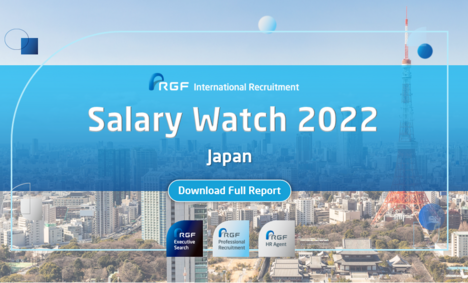
In November 2018, I made an appearance as a speaker and panelist to the 48th CFO World Congress in Vietnam, “Transforming Finance in a Digital Age,” which discussed the impact of new technologies and policies in finance.
My speech, entitled “Next Digitalization & Values for CFOs” discussed that a CFO’s key role in the digitalization of an organization is to spearhead and lead digitalization projects. Various digitalization projects, so called X-Tech, had already been implemented and were being utilized in most organizations back then. FinTech was the CFO’s core area of responsibility, AdTech for marketing activities, and RoboTech for the automation of processes. Back then, I projected that the next wave of digitalization would be HR Tech.
By looking at the data trends surrounding the investment for start-up HR Tech, it grew from USD 305mil (77 cases) in 2011 to USD 2,215 mil (402 cases) in 2016.[1]

Source: Josh Bersin, Bersin by Deloitte
Looking back, after close to three years, it’s quite interesting to examine how business environments across the world have evolved since then. Here are some of my findings:
Heavy investment in HCM and HR Tech
In my speech in 2018, I described human centric management (HCM) as Talent Management x Financial Analysis.
The most important role for a CFO from the HCM perspective is to connect Talent Management and Financial Analysis and to optimize the data.
Therefore, the CFO’s next challenge is reinforcing an organization’s value and competitiveness through appropriate HCM, which would entail:
-
Combining HR and Finance data
-
Utilizing combined financial capital and human capital data in management meetings
-
Establishing a designated CHRO to form the three core members of the C-Suite (G3 Management Team): CEO-CFO-CHRO
Now, more than ever, businesses are focused on HCM through HR Tech. In fact, “HR Tech is one of the most active sectors for investors, with an overall funding of USD 51.5B in 5.1K+ companies. It is also interesting to note that half of the funding has been raised in the last 3 years (2018-2020).”[2]
Back in 2018, I projected that the future focus of HR Tech would be workforce behavior and activities, including sharing best practices in the workplace (so-called microlearning) and collecting statistical data on workforce behavior and employee satisfaction.
From this data, it seems venture capital firms in 2021 have seen this need and are investing heavily in HR Tech that improves collaboration and communications, learning, and wellness.
Source: George Larocque, Unleash
Based on my discussions with 50 of the largest Japanese companies in 2018, although there is heavy investment in HR Tech, Japan is still lagging behind HR Tech market penetration with most of them only considering implementation or were in the process of implementing HR Tech in 2018.
To effectively implement the latest HR Tech, you will need qualified and highly knowledgeable HR professionals who are equipped with ample business information and the fundamentals of strategic HR.
Lack of CHROs in Japan
In 2018, I met with board members responsible for HR in 50 of the largest Japanese companies and I asked them if they had a designated CHRO in the organization. Out of 50, only three had the title of CHRO.
During my speech, I had asked the audience comprised of South East Asian participants to raise their hand if they had a CHRO in their organization. About 25% raised their hand, which was 19% more than Japan’s. Among the crowd, one participant asked why Japan doesn’t have as many CHROs and my answer was clear back then, and probably the same even today “In Japan HR is not recognized as one specific field of expertise.”
About a few years ago, I was given the opportunity to listen to a speech made by a CFO from one of the largest Japanese public companies where he said: “Even though I don’t have a finance background, there is no problem for me to serve as CFO.”
I was quite shocked.
Quite recently I shared this information in a small gathering of entrepreneurs and CHROs, and they all were surprised.
Then I asked them “How about CHROs? Do CHROs in major Japanese companies have HR expertise?” All of them shook their heads.
From that, I wondered why they expected a CFO to be a Finance expert, but for a CHRO, the opposite?
This made me think that perhaps the G3 management team (CEO-CFO-CHRO) has not yet fully penetrated Japan since 2018.
A CFO’s realization about CHROs and talent development
In 2018, my dialogue between SHRM (the Society of Human Resource Management) just began. Initially, SHRM told me that Japan was out of SHRM’s world strategy and that it could be extremely difficult. However, I was so certain that world standard HR education was necessary for Japan and thus continued dialogues with SHRM in the next 2 years.
As a result, since January 2021, the SHRM Essentials program has been available in Japan in Japanese as a SHRM credential program through Human Resource Accreditation Institute (HRAI). It is the first time in 70 years for the SHRM program to be translated into another language other than English.
This is my mission, born from my 20-year experience serving as CFO in several global companies in Japan. During my 20 years, the final decision for these companies was made by the CEO and the CFO, myself, which mostly focused on budgets and sustaining good performance. However, I often asked myself, especially in the last 3 years, “Our decisions were right from the viewpoint of achieving short-term goals, and probably was the most efficient and effective. But when looking at mid to long-term strategy, particularly talent development, did we discuss it enough? Did we make the right decisions for talent development?”
Each day this question grew in my mind while cherished and developed talent within the organization started leaving one after the other.
From this I realized that the core of an organization is its Vision, Mission, and Values (VMV), and the company goal is derived from these. To achieve the goal, an organization has 2 major capitals: Financial and Human Capital. Therefore, for businesses to truly succeed, they need to have a CEO, CFO, and CHRO:
-
VMV owned by CEO who can tell the story of the business with passion
-
Financial capital owned by CFO who can tell the story of the business with numbers
-
Human Capital owned by CHRO who can tell the story of the business with the talent they have.
HR outside of Japan
In many countries outside of Japan, there are educational institutions that provide HR courses. Many HR professionals also continue their HR study throughout their career and join HR professional associations like SHRM to be certified as an HR professional.
In Japan, HR is not yet recognized in the same way where you can learn HR across its functions in a structured and specialized manner through an accredited institution.
Fortunately, through Human Resource Accreditation Institute (HRAI), we can provide an avenue to learn about the fundamentals of HR through the SHRM Essentials program in Japanese and English.
Since the program launched in January 2021, learners in Japan have mainly been CHROs and CEOs (business owners) who have mentioned that the program is effective and needed in Japan.
Repeating history: CFO & CHRO
In Japan, Strategic Finance and Finance Business Partner roles are not new and most people are aware of the importance of having a CFO. This shift happened in the last 10 years. In the past, finance was considered a back-office function and professionals within finance were expected to perform administrative roles.
Since then, Finance transformed from a record keeper role to a true business partner in the last decade.
Today, people know what a CHRO is – however, it is quite limited. In the next decade, it is time for HR to be transformed into a strategic role headed by a CHRO that can fully influence business decisions.
I recall that shifting to a business partner was not an easy journey for Finance.
Evolution was necessary from both the management team and the Finance workforce that accepted the change and pursued new skills and knowledge to fill the gaps needed from a business partner role.
The same evolution is now needed within HR to fully develop talent and to fully optimize human capital within the business. Only through fully optimizing financial capital and human capital will businesses be able to dominate against their competitors.
I am quite certain that 2021 will be a new era for HR in Japan.
Sources:
1 - https://www.slideshare.net/jbersin/the-hr-technology-market-trends-and-disruptions-for-2018/15-HR_Tech_2017_Keynote_15Copyright
2 - https://tracxn.com/d/emerging-startups/top-hrtech-startups-2021
>Guest writer:

Fumie Hanazono
Chair of the Executive Board of HRAI
President & CEO of ASTAR LLP
HRAI-Human Resource Accreditation Institute
HRAI is an organization operated by ASTAR LLP, the first and only Official Partner with SHRM in Japan. HRAI’s aim is to inspire and develop Global HR professionals and bridging borderless by leading world-standard HR education and certification in Japan.
Since January 2021, HRAI provides the SHRM Essentials of Human Resources program in Japanese, English and bilingually (in both Japanese and English). The program provides an introductory overview of key HR topics and the fundamental issues surrounding HR in 2 full-day program or 4 half-days. After successful completion of the program and assessment, you will earn SHRM Credential. HRAI is a leading world-class HR education and certification in Japan.
For more information, please visit our website https://hr-ai.org

Working at a global company has many advantages, not only for those who want to work globally and those who want to make use of their language skills, but also for people who strive to Unleash their Potential seek their own potential and have a healthy work-life balance.
RGF Professional Recruitment Japan supports the recruitment hiring activities of many of the top domestic and foreign capital companies in Japan. Various excellent companies including foreign and Japanese global companies located in Japan. Therefore, as a result, we can introduce the best career options for each person.to suite all types of career profile.
If you want to work in a global environment or globally, want to work in a place where you can perform more, or want toto a higher level and expand your career options in the future, please contact us. Our experienced consultants will do their best to support your career growth.







